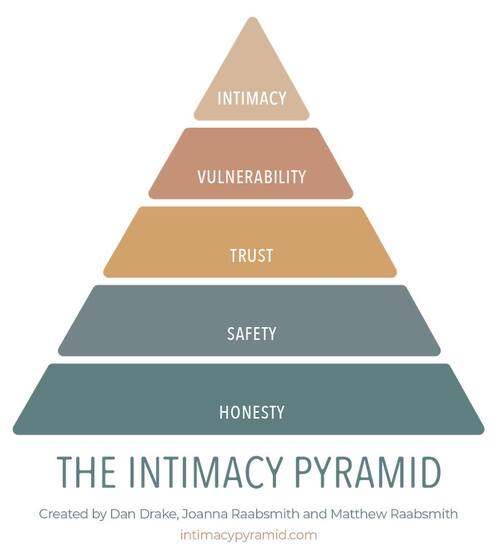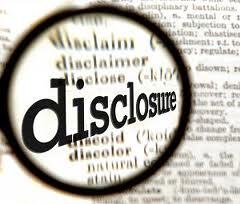I have been found out!
What do I do now?
If your partner has just found out that you engage in unwanted sexual behaviours you may be in a place of shame, fear and uncertainty. Or you might be relieved that the truth is finally out. This leaflet provides some information and suggestions that will hopefully help you.

Here are some helpful things we’d like you to know
The nature of it
You may have spent years trying to stop these behaviours, only to find yourself returning to them again and again. If that’s been your experience, please know this: your struggle is not a moral failure. These behaviours are often driven by addictive patterns rooted in parts of the brain that operate separately from your values, your beliefs, and your moral compass.
For many adults, unwanted sexual behaviours began with early exposure to explicit sexual content—what started as curiosity or a sense of fun gradually developed into a need. Over time, this can become an ingrained coping mechanism.
Unwanted sexual behaviours are often not about sex at all—they are a way of coping with inner pain. Sometimes the source of that pain is clear, such as past trauma or broken relationships. Other times, it may stem from subtler emotions like loneliness, disconnection, or even boredom—feelings you might not immediately label as “pain,” but that still leave a void.
What may have started as a moment of curiosity can spiral into a cycle of pain, behaviour, and shame. In an attempt to dull the discomfort, the brain turns to sexual behaviours for temporary relief. But this relief is short-lived, often leaving you feeling worse, not better.
Understanding this pattern is the first step toward change. You’re not broken—you’re human. And healing is possible.
If we are supporting your partner, we will help them to understand this.
For many adults, unwanted sexual behaviours began with early exposure to explicit sexual content—what started as curiosity or a sense of fun gradually developed into a need. Over time, this can become an ingrained coping mechanism.
Unwanted sexual behaviours are often not about sex at all—they are a way of coping with inner pain. Sometimes the source of that pain is clear, such as past trauma or broken relationships. Other times, it may stem from subtler emotions like loneliness, disconnection, or even boredom—feelings you might not immediately label as “pain,” but that still leave a void.
What may have started as a moment of curiosity can spiral into a cycle of pain, behaviour, and shame. In an attempt to dull the discomfort, the brain turns to sexual behaviours for temporary relief. But this relief is short-lived, often leaving you feeling worse, not better.
Understanding this pattern is the first step toward change. You’re not broken—you’re human. And healing is possible.
If we are supporting your partner, we will help them to understand this.
Our Talking Sex website https://newcommunity.org.au/2023-talking-sex has a mini-series on Unwanted Sexual Behaviours beginning at Episode 20 so check this out if you would like to understand this more.
What your partner is going through
For most people, discovering that their partner has been engaging in unwanted sexual behaviours feels like a profound betrayal. It shakes the very foundation of their world. Relationships are built on trust, honesty, and mutual respect—so when that trust is broken, it doesn’t just damage the relationship, it shatters their understanding of everything they believed it stood for.

Jesus said, “The thief comes only to steal and kill and destroy; I have come that they may have life, and have it to the full.” (John 10:10).
These behaviours steal from the fullness of life—robbing the beauty and depth of intimacy, trust, and connection that make relationships thrive.
You may feel some sense of relief now that the secret is out. The weight of hiding has been lifted—but that weight has not disappeared. It has been transferred to your partner. What was once your burden is now theirs, and it has devastated their sense of safety and stability. The person they once turned to for comfort is now the source of their pain. That kind of disorientation is incredibly painful.
You may feel some sense of relief now that the secret is out. The weight of hiding has been lifted—but that weight has not disappeared. It has been transferred to your partner. What was once your burden is now theirs, and it has devastated their sense of safety and stability. The person they once turned to for comfort is now the source of their pain. That kind of disorientation is incredibly painful.
Your partner might wonder if they are somehow to blame for your choices. They are not. We are all responsible for our own behaviours. Yes, the relationship may have had its difficulties—tension, unmet needs, frustrations—but the decision to engage in those behaviours was yours alone. It is good to check with your partner to ensure that they understand that it is not their fault.
In the aftermath of disclosure, your partner is likely to experience shock. As time passes, they may begin to move through a process of healing—both personally and, if they choose, within the relationship. During this time, they are grieving. They are mourning the loss of the relationship they thought they had, and the future they imagined.
In the aftermath of disclosure, your partner is likely to experience shock. As time passes, they may begin to move through a process of healing—both personally and, if they choose, within the relationship. During this time, they are grieving. They are mourning the loss of the relationship they thought they had, and the future they imagined.

Grief is not linear. It comes in waves. One moment your partner may seem okay, and the next they may be overwhelmed by sadness, anger, or confusion. This emotional rollercoaster is not a sign of instability—it’s a normal and healthy part of the grieving process.
As difficult as this season is, your partner’s emotional responses are not something to fix or control. They are to be respected and held with compassion.
Healing takes time so allow time, don’t be in a rush.
Healing takes time so allow time, don’t be in a rush.
Disclosure
The way couples navigate disclosure can have a profound impact on whether trust can be rebuilt. It's completely natural to want to protect both your partner and yourself. You might feel tempted to reveal only part of the truth or to downplay how often certain behaviours occurred. This could be because you’re ashamed, afraid of the consequences, or worried that the full truth will devastate your partner or lead them to leave.
However, revealing the truth gradually—what we call trickle disclosure or drip-feeding—can be deeply damaging. Each time your partner discovers new information or realizes that what you previously shared wasn’t the whole story, they experience another wave of betrayal. Any trust that had begun to rebuild is shattered again.
For your relationship to have a real chance at repairing, full and honest disclosure is essential—but it must be done with care, not rushed.
However, revealing the truth gradually—what we call trickle disclosure or drip-feeding—can be deeply damaging. Each time your partner discovers new information or realizes that what you previously shared wasn’t the whole story, they experience another wave of betrayal. Any trust that had begun to rebuild is shattered again.
For your relationship to have a real chance at repairing, full and honest disclosure is essential—but it must be done with care, not rushed.

If the behaviours you’re disclosing are relatively straightforward and involve repeated patterns, you may be able to begin that conversation on your own. Still, be mindful about how you share details. Some information, while truthful, can cause unnecessary harm if not shared appropriately. If your partner asks a question and you're unsure whether answering it will help or hurt, you can say something like:
"I will answer that, but I’d like to give it a couple of days. Maybe you could speak to someone you trust before deciding if you really want to know."
This allows space for reflection and support.
"I will answer that, but I’d like to give it a couple of days. Maybe you could speak to someone you trust before deciding if you really want to know."
This allows space for reflection and support.
If your behaviour is more complex—perhaps involving secrecy over a long period, multiple types of betrayal, or events you struggle to piece together yourself—it’s better to acknowledge this. Let your partner know that you want to disclose everything but would like to do it well. This may mean seeking help from a professional first to ensure the process is handled thoughtfully and with support for both of you. (If you’re unsure whether your situation is complex, refer to the complex disclosure guidance provided here.)
It’s also important to understand that your partner may have many questions, but getting every answer immediately or at all, might not actually be in their best interest. They may need time, possibly with support, to decide what they truly want to know. Once something is heard, it can’t be unheard—and there’s no “bleach for the brain.”
It’s also important to understand that your partner may have many questions, but getting every answer immediately or at all, might not actually be in their best interest. They may need time, possibly with support, to decide what they truly want to know. Once something is heard, it can’t be unheard—and there’s no “bleach for the brain.”
If your behaviours have been going on for a long time or involve deep compartmentalization, you may need support just to piece together your own story. This is a common and natural response to shame, fear, or trauma. Working with a professional can help you gain clarity, reconnect with your own emotions and memories, and prepare you to disclose in a way that is honest and healing.
We have resources and trusted professionals who can guide you through this process. You're not alone—and doing this well can make a significant difference in your relationship's potential to recover.
We have resources and trusted professionals who can guide you through this process. You're not alone—and doing this well can make a significant difference in your relationship's potential to recover.
Full Disclosure: Seeking Truth After Sexual Betrayal Janice Caudill & Dan Drake 2020, 2021 & 2022 – this is a set of 3 books that can be a guide for you, New Community has them and you can borrow them. There is an accompanying book for your partner.
Noni & Dave Yates (who tell their story in episodes 26-29 of our Talking Sex Podcast https://newcommunity.org.au/2023-talking-sex) are trained to lead you through Full Disclosure work and can be contacted at affairrecoverycounselling@gmail.com or through their website https://beyondbetrayalrecoverybook.com/contact-us/ (Please note that there is a cost associated with this professional help.)
Noni & Dave Yates (who tell their story in episodes 26-29 of our Talking Sex Podcast https://newcommunity.org.au/2023-talking-sex) are trained to lead you through Full Disclosure work and can be contacted at affairrecoverycounselling@gmail.com or through their website https://beyondbetrayalrecoverybook.com/contact-us/ (Please note that there is a cost associated with this professional help.)
Here are some things you can do
Self care
Your mental and physical health matter. If shame engulfs you, book in to see a counsellor or psychologist who can listen to you, support you and help with strategies.
Exercise, sleep and eating well matter. Intensive exercise can help relieve some of the stress you may feel.
Exercise, sleep and eating well matter. Intensive exercise can help relieve some of the stress you may feel.
Support
You may not want anyone to know, but you and your partner need support, so it matters that you tell a small number of people. Having a conversation with your partner about who you will each tell is helpful. Choose wisely the people who you think will offer good support to you. We can help you find someone to talk with and support you who has their own experience with these behaviours, we call them ‘Alongsiders’.
Respect boundaries

Your partner will want to create some boundaries in order to feel safe – remember when the intimacy pyramid crumbles their feeling of safety is impacted. It is important that you respect their boundaries. You can respectfully discuss them if they seem unfair or harsh, but kindness and support are your priority here.
Agreed upon scripts
It may be helpful to create some agreed upon scripts for managing your social circle. Over the next while your attendance or behaviour in situations may be different from what it has been so to know what you are going to say and not say is helpful. Having a few lines you can answer with means you won’t feel stuck and awkward when others ask questions and notice changes.
Helpful course
We have a Pathway to Freedom Course for any who struggle with unwanted sexual behaviours and want to be free of them. See the app for details.
We would love to support you in this journey so please reach out to either ncrpathways@gmail.com (this email address is not currently in use, will be updated) to connect with a man who is now free of these behaviours or to ali@ncr.org.au Ali overseas Wellbeing at New Community.
Ali Box and The Pathway to Freedom Team
